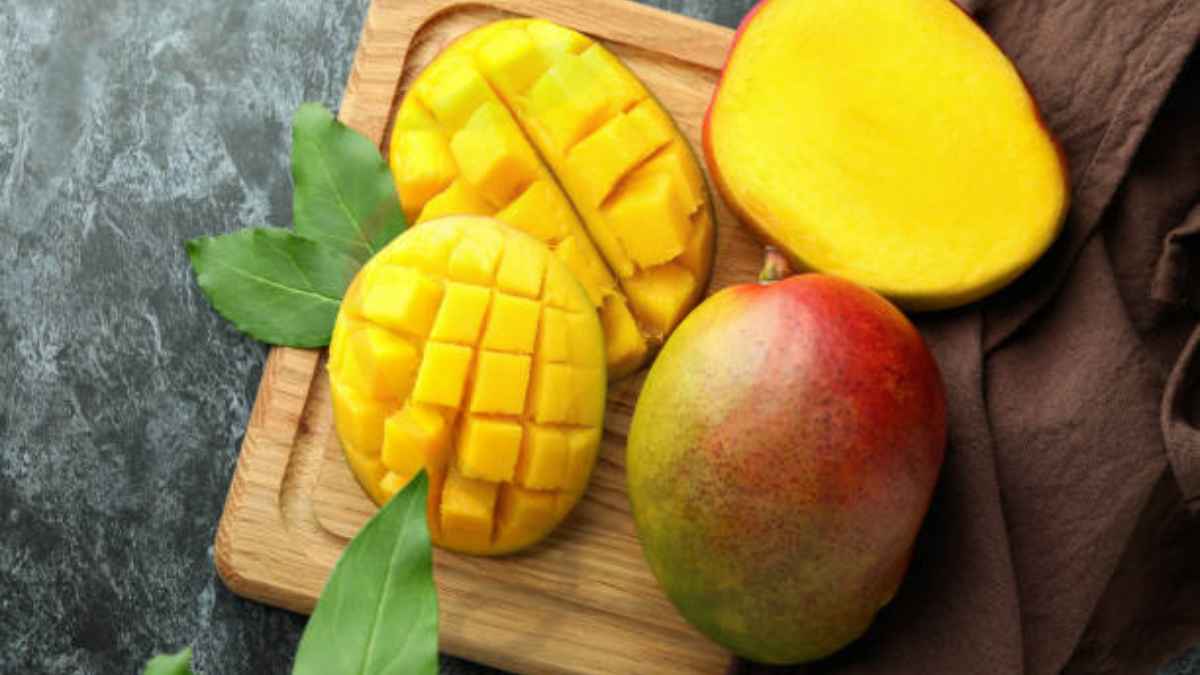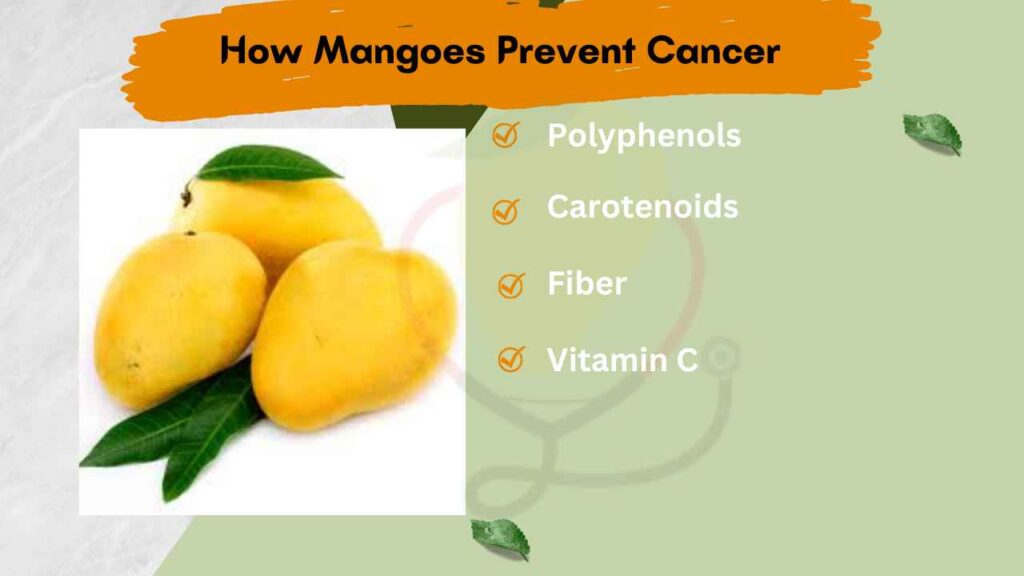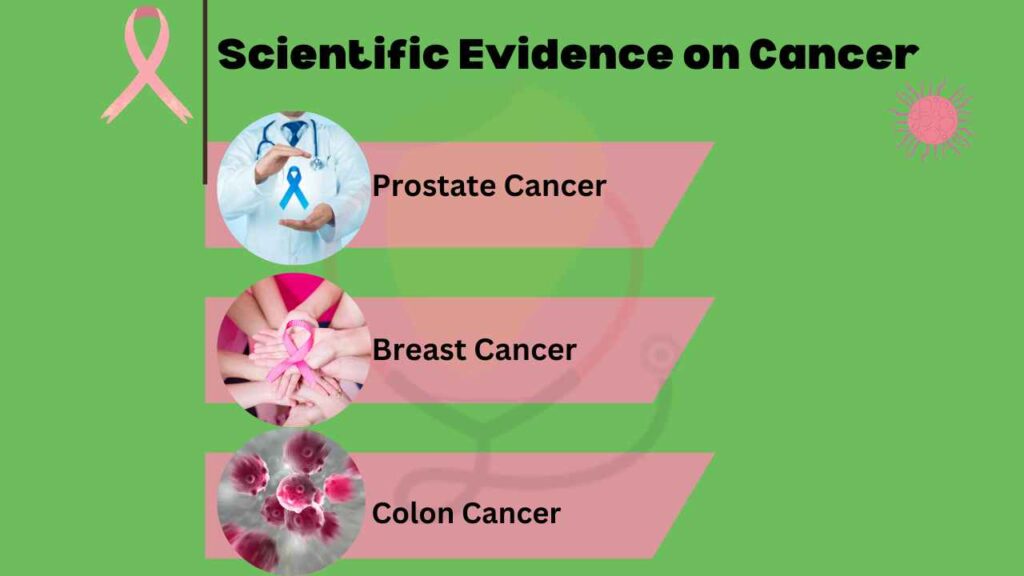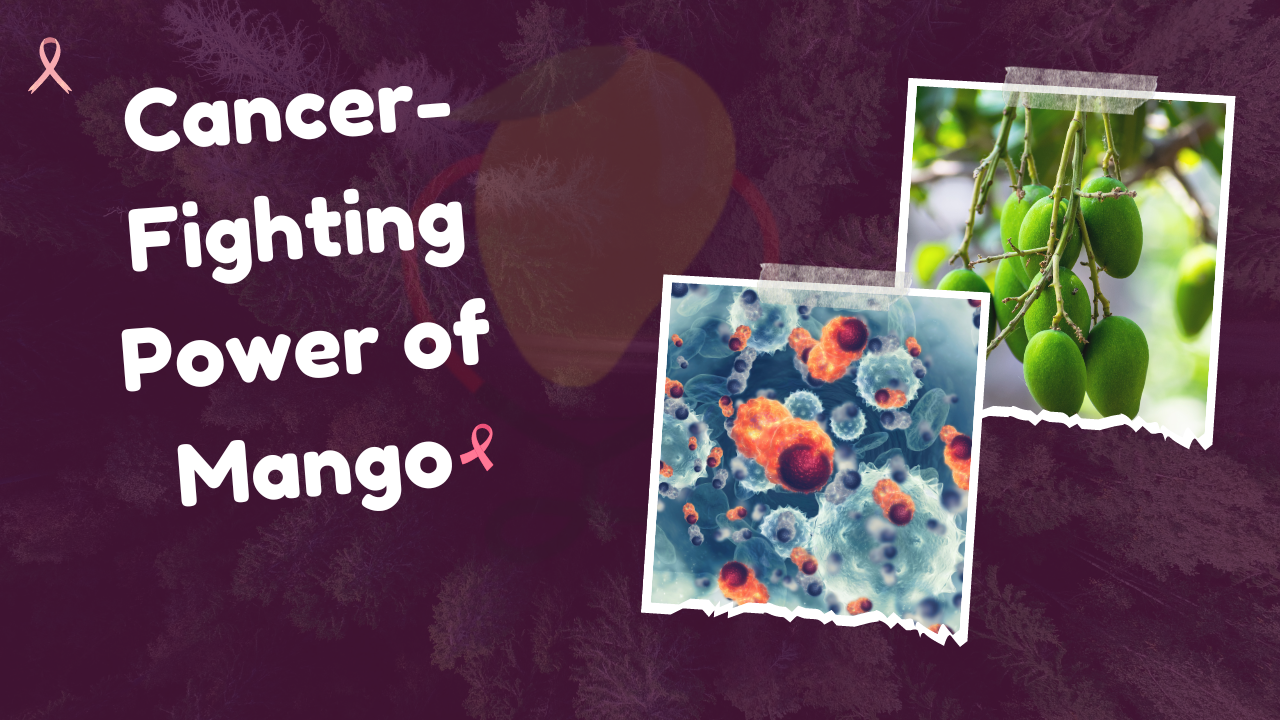Mangoes are a fruit that contain mangiferin, an anticancer compound.
Studies have shown that mangiferin help to reduce inflammation, boost the immune system, and inhibit the spread of cancer cells. This suggests that mango Against Cancer have potential of prevention.
Research has also found that extracts from mango fruit prevent or stop the growth of certain types of colon and breast cancer cells in laboratory studies.
Mangoes appear to have several potential health benefits and may be a healthy addition to your diet. [1]

Cancer is one of the leading causes of death worldwide. The World Health Organization estimates that there were 10 million deaths from cancer in 2020 alone.
The good news is that many types of cancer are preventable, and diet plays a crucial role in cancer prevention.
Mangoes are one of the many fruits that have been shown to have anti-cancer properties.
Mango Against Cancer
Mangoes contain several compounds that have been shown to have anti-cancer properties. These include.
In this article we will talk about the Mango Against Cancer.

1: Polyphenols
Polyphenols are a type of antioxidant that helps to prevent cell damage caused by free radicals.
Polyphenolsand other dietary reducing agents such as vitamin C, vitamin E, and carotenoids vitamin C, vitamin E, and carotenoids, are known as antioxidants.
They protect the body’s tissues from oxidative stress, which is linked to various pathologies like cancer, coronary heart disease, and inflammation. [2]
2: Carotenoids
Carotenoids can reduce cancer risk through antioxidant defense and by affecting various signaling pathways at the molecular level, including proliferation, apoptosis, cell cycle progression, angiogenesis, and metastasis. [3]
3 Fiber
Eating a diet that is high in fiber, especially whole grains lower the risk of cancer.
A high-fiber diet can also assist in reducing overall calorie intake and maintaining a healthy weight, which is essential for reducing the risk of cancer.
It also plays a role in cancer prevention by binding to carcinogens and removing them from the body. [4]
4: Vitamin C
There is no evidence that vitamin C can cure cancer on its own, ongoing research is investigating whether it enhance the effectiveness of other cancer treatments like chemotherapy and radiation therapy, or alleviate treatment side effects.
In vivo studies have demonstrated that high doses of vitamin C could either kill cancer cells or slow down tumor growth.
Vitamin C concentrations ranging from 0.3-20 mol/L have been found to selectively target and eliminate cancer cells. [5]
Scientific Evidence about Cancer
Several studies have investigated the properties of Mango Against Cancer. Here are some of the key findings. [6]

1: Prostate Cancer
A study published in the journal Cancer Research found that mango polyphenols could suppress the growth of human prostate cancer cells.
The researchers suggested that mango polyphenols could be used as a potential chemo preventive agent for prostate cancer. [7]
2: Breast Cancer
Another study published in the Journal of Agricultural and Food Chemistry investigated the effects of mango polyphenols on breast cancer cells.
The study found that the polyphenols could inhibit the growth and spread of breast cancer cells. [8]
3: Colon Cancer
A study published in the journal Food and Function investigated the effects of mango polyphenols on colon cancer cells.
The study found that the polyphenols could induce apoptosis (programmed cell death) in the cancer cells, suggesting that mango polyphenols could be a potential treatment for colon cancer. [9]
Mangoes are not only delicious but also have numerous health benefits, including cancer prevention.
The anti-cancer properties of mangoes are due to their high content of polyphenols, carotenoids, fiber, and vitamin C.
Scientific studies have shown that mangoes could be used as a potential treatment for prostate, breast, and colon cancer.
Incorporating mangoes into your diet is easy and done in a variety of ways with properties of Mango Against Cancer.
FAQs
Is mango an anticancer agent?
Mango showed some impact on lung, leukemia and prostate cancers but was most effective on the most common breast and colon cancers.
How do carotenoids affect cancer cells?
Carotenoids exert anti-cancer effects through the various signaling pathways of proliferation, apoptosis, cell cycle progression, angiogenesis, and metastasis.
Can mangoes prevent all types of cancer?
Mangoes have been shown to have anti-cancer properties; they cannot prevent all types of cancer. Incorporating mangoes into your diet as part of a healthy lifestyle could help reduce your risk of developing certain types of cancer.
How many mangoes should I eat to reap their cancer-preventing benefits?
There is no specific amount of mangoes that you need to eat to reap their cancer-preventing benefits.
Can I still eat mangoes if I have cancer?
Yes, you can still eat mangoes if you have cancer.
Are there any side effects of eating mangoes?
Mangoes are generally safe to eat, some people may be allergic to them. Symptoms of a mango allergy include itching, swelling, and difficulty breathing. If you experience any of these symptoms after eating mangoes, stop consuming them and seek medical attention.
Can I eat mangoes if I am trying to lose weight?
Mangoes are relatively high in calories and carbohydrates, so they should be consumed in moderation if you are trying to lose weight. They are also a good source of fiber, which can help you feel full and satisfied.

